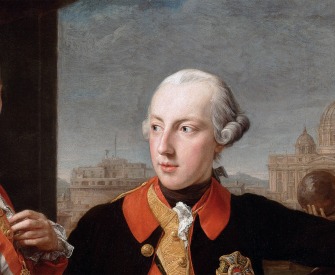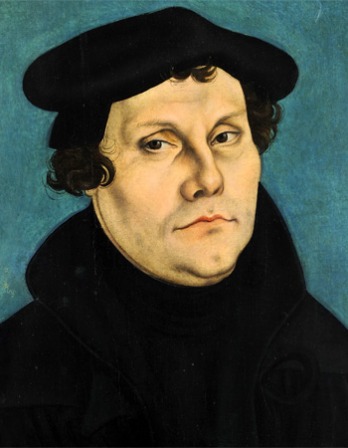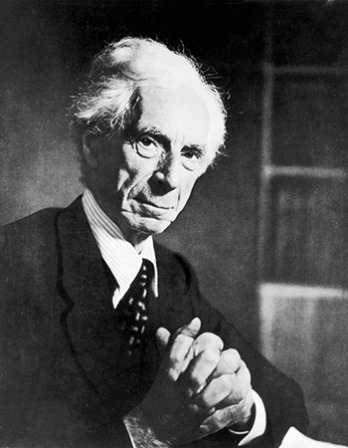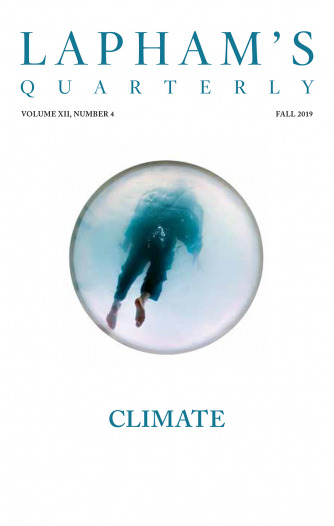At the moment when Charlemagne had begun to reign as sole king in the western regions of the world, two Scots from Ireland happened to visit the coast of Gaul in the company of some British traders. These men were unrivaled in their knowledge of sacred and profane letters, at a time when the pursuit of learning was almost forgotten throughout the length and breadth of Charlemagne’s kingdom and the worship of the true God was at a very low ebb. They had nothing on display to sell, but every day they used to shout to the crowds who had collected together to buy things, “If anyone wants some wisdom, let him come to us and receive it, for it is wisdom that we have for sale.” They announced that they wanted to sell wisdom because they saw that the people were more interested in what had to be paid for than in anything given free. Either they really thought that they could persuade the crowds who were buying other things to pay for wisdom, too, or else, as subsequent events proved to be true, they hoped that by making this announcement they would become a source of wonder and astonishment. They went on shouting their wares in public so long that in the end the news was carried by the onlookers, who certainly found them remarkable and maybe thought them wrong in the head, to the ears of King Charlemagne himself, who was always an admirer and a great collector of wisdom. He ordered them to be summoned to his presence immediately, and he asked them if it was true, as everyone was saying, that they had brought wisdom with them. They answered, “Yes, indeed, we have it, and in the name of God we are prepared to impart it to any worthy folk who seek it.” When Charlemagne asked them what payment they wanted for wisdom, they answered, “We make no charge, King. All we ask is a place suitable for us to teach in and talented minds to train; in addition, of course, food to eat and clothes to wear, for without these our mission cannot be accomplished.” Charlemagne was delighted to receive this answer. For a short time he kept them both with him. Later on, when he was obliged to set out on a series of military expeditions, he established one of the two, who was called Clement, in Gaul itself. In his care he placed a great number of boys chosen not only from the noblest families but also from middle-class and poor homes, and he made sure that food should be provided and that accommodation suitable for study should be made available. Charlemagne sent the second man to Italy and put him in charge of the monastery of St. Augustine, near the town of Pavia, so that all who wished might join him there and receive instruction from him.
When, after a long absence, Charlemagne returned to Gaul with a long series of victories to his credit, he ordered the boys whom he had entrusted to Clement’s care to visit him and present to him their prose writings and their poems. Those of middle-class parentage and from very poor homes brought excellent compositions, adorned more than he could even have hoped with all the subtle refinements of knowledge, but the children of noble parents presented work which was poor and full of stupidity. Then Charlemagne, imitating in his great wisdom the justice of the eternal Judge, placed those who had worked well on his right hand and said to them, “My children, I am grateful to you, for you have tried your very hardest to carry out my commands and to learn everything that will be of use to you. Continue to study hard and to strive for perfection, and I will give you bishoprics and fine monasteries, and you will always be honored in my sight.” Then he turned with great severity to those on his left, with a frown and a fiery glance which seemed to pierce their consciences, and scornfully thundered out these frightening words: “But you young nobles, you, the pleasure-loving and dandified sons of my leaders, who trust in your high birth and your wealth, and care not a straw for my command or for your own advancement, you have neglected the pursuit of learning and have indulged yourselves in time-wasting follies and in the childish sport of fine living and idleness.” When he had said this, he turned his august head and raised his unconquered right hand toward the heavens, and thundered forth an oath against them: “By the king of heaven, I think nothing of your nobility and your fine looks! Others can admire you for these things if they wish! Know this for certain: unless you immediately make up for your previous idleness by diligent study, you will never receive anything worth having from Charlemagne!”
From On Charles the Great. Fighting against the Saxons during the first thirty years of his reign of the Frankish kingdom, Charlemagne conquered a large tract of land between the Rhine and the Elbe rivers. His secretary Einhard described him as having “beautiful white hair, animated eyes, a powerful nose.” Charlemagne’s interest in promoting learning led him to employ Alcuin of York, who established the study of the seven liberal arts and promoted the Carolingian minuscule, a script that survives as the basis of present upper- and lowercase type.
Back to Issue





